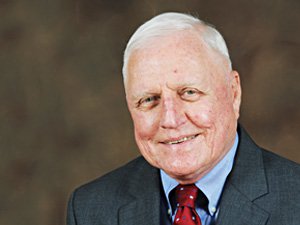Ricochet is the best place on the internet to discuss the issues of the day, either through commenting on posts or writing your own for our active and dynamic community in a fully moderated environment. In addition, the Ricochet Audio Network offers over 50 original podcasts with new episodes released every day.
Trade and trade partnerships hit the American public in a big way this past summer in the form of the Trans-Pacific Trade Partnership, with voices on right and left chiming in on a deal positioned as President Obama’s NAFTA. Signed this past February by twelve nations representing 40% of the world economy, it produced a wide variety of opinions even within my home base at the American Enterprise Institute.
But China – one half of the world’s two economic superpowers — wasn’t part of the TPP, and Donald Trump’s campaign trail emphasis on failed American deal-making seems to stoke popular fears that trade with that country hurts the American worker. So did “trade [make[ America great,” as one CEO opined in the WSJ? “Are Trade Agreements Good for Americans”? Is America losing a trade war that will see China crowned the world’s strongest economy?
 Here to simplify for us is Claude Barfield, Resident Scholar in international trade policy, science, and technology at the American Enterprise Institute. Before coming to AEI, he was on the faculties of Yale and the University of Munich, and worked at the National Journal; in the Department of Housing and Urban Development; the Senate Governmental Affairs Committee, and as a consultant to the office of the U.S. Trade Representative. He is the author of Swap: How Trade Works and Telecoms and the Huawei conundrum: Chinese foreign direct investment in the United States, among other publications. He holds a PhD from Northwestern University.
Here to simplify for us is Claude Barfield, Resident Scholar in international trade policy, science, and technology at the American Enterprise Institute. Before coming to AEI, he was on the faculties of Yale and the University of Munich, and worked at the National Journal; in the Department of Housing and Urban Development; the Senate Governmental Affairs Committee, and as a consultant to the office of the U.S. Trade Representative. He is the author of Swap: How Trade Works and Telecoms and the Huawei conundrum: Chinese foreign direct investment in the United States, among other publications. He holds a PhD from Northwestern University.
Subscribe to Political Economy with James Pethokoukis in Apple Podcasts (and leave a 5-star review, please!), or by RSS feed. For all our podcasts in one place, subscribe to the Ricochet Audio Network Superfeed in Apple Podcasts or by RSS feed.









